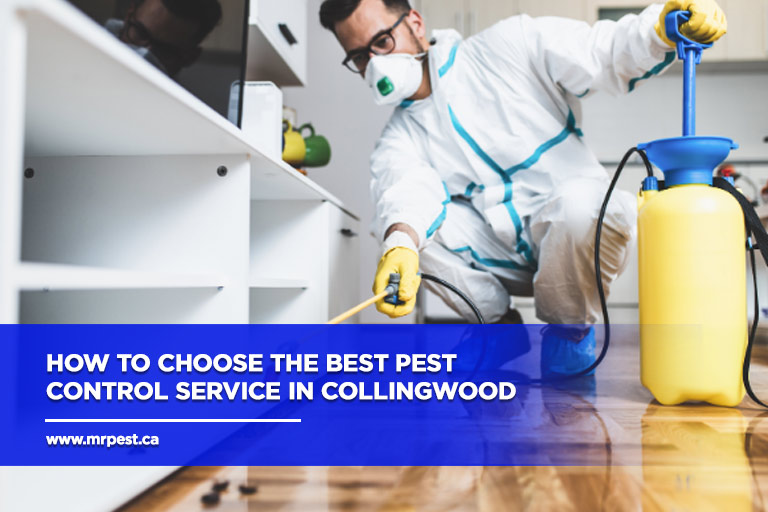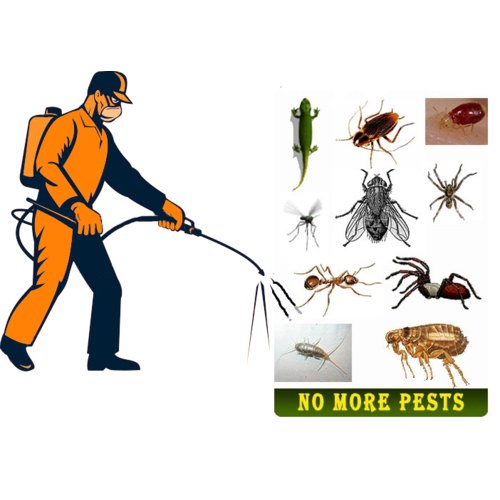Safe and Dependable Parasite Control for Lasting Protection
Efficient pest monitoring needs a multifaceted technique that balances eco-friendly stability with the need for reliable insect suppression. The subtleties of these techniques may not be quickly clear, motivating a better examination of the techniques that can lead to lasting pest control end results.
Comprehending Pest Control Approaches
Parasite control incorporates a range of techniques targeted at handling and eradicating undesirable pests and rats that can endanger both health and wellness and property. Comprehending these approaches is important for effective bug management.
The main groups of parasite control approaches include mechanical, biological, and chemical methods. Mechanical approaches include physical barriers and catches to prevent insect access and capture undesirable varieties. Using displays on home windows or using sticky catches can significantly decrease bug populaces without introducing harmful compounds - exterminator coquitlam.

Chemical bug control is usually the most identified method, using chemicals to get rid of pests. These chemicals can be effective however have to be utilized with care to stay clear of negative results on non-target species and the environment.
Advantages of Eco-Friendly Solutions
How can green solutions transform bug control practices? The adoption of environmentally friendly parasite control approaches provides many advantages, significantly improving the efficiency and safety and security of pest administration.

Another benefit is the favorable effect on regional biodiversity. Environment-friendly services are designed to target certain pests while maintaining helpful insects and wildlife, promoting a well balanced ecosystem. This strategy lines up with the expanding customer demand for sustainable methods, boosting the reputation of parasite control service providers.
Integrated Parasite Management Approaches
The implementation of environmentally friendly remedies normally results in the adoption of Integrated Pest Monitoring (IPM) strategies, which additionally boost insect control efficiency. IPM is an alternative strategy that combines several techniques to take care of bug populations while minimizing ecological influence. This approach highlights using organic, cultural, mechanical, and chemical controls, ensuring a lasting and balanced method of bug management.
One fundamental aspect of IPM is the extensive analysis of pest task and ecological conditions. By keeping track of parasite populaces and recognizing their life cycles, experts can apply targeted treatments that interfere with the bug's habitat or lifecycle, minimizing dependence on chemical pesticides. Furthermore, social techniques such as crop rotation and habitat control can considerably decrease parasite facility and recreation.
An additional vital part is making use of biological control agents, such as useful bugs or microbes, which can naturally subdue parasite populaces. When chemical applications are required, IPM focuses on making use of low-risk pesticides and uses them selectively, decreasing direct exposure to non-target organisms and human beings.
Including IPM approaches not just improves parasite control effectiveness yet additionally promotes a much safer ecological community, straightening with the expanding need for sustainable techniques in parasite management.
Safe Practices for Home Owners
Understanding the value of safe methods in bug control can encourage house owners to properly manage insect concerns while guarding their health and wellness and the atmosphere. Carrying out safe approaches and safety nets is vital in decreasing direct exposure to hazardous chemicals.
House owners should initially analyze their setting for problems that attract bugs, such as standing clutter, food, and water waste. Consistently cleaning and securing access factors can discourage bugs from invading the home. Utilizing all-natural deterrents, such as important oils or diatomaceous planet, can supply reliable alternatives to chemical pesticides.
When chemical treatments are necessary, house owners should choose products that termite poison are specifically identified as secure for household use. It is important to adhere to application guidelines meticulously to prevent too much exposure. Moreover, making use of targeted therapies in areas where pests are recognized, as opposed to covering spraying, can considerably minimize chemical usage.
Finally, maintaining open communication with parasite control professionals is vital. House owners should ask about the security of products used and request green choices whenever possible. By adopting these secure practices, homeowners can produce a much healthier living environment while effectively taking care of insect concerns.

Tips for Long-Term Protection
Establishing a bug management approach that stresses lasting defense can substantially improve the effectiveness of the risk-free techniques formerly discussed. To achieve this, house owners need to apply normal examinations of their building, concentrating on hidden locations such as attic rooms, basements, and crawl rooms. Early detection of bug activity is vital in protecting against invasions from taking hold.
In addition, preserving a clean atmosphere is important. This includes appropriate food storage, without delay cleansing spills, and regularly throwing away rubbish. These techniques decrease attractants that attract insects into the home. Securing entry factors, such as cracks around home windows and doors, can effectively block possible pest accessibility.
Landscape design must likewise be taken into consideration; keeping plants trimmed and preserving a range between plant life and the home minimizes concealing spots for bugs. Using all-natural deterrents, such as crucial oils or diatomaceous planet, can additionally inhibit infestations without turning to rough chemicals.
Last but not least, working together with an expert parasite control solution for periodic assessments can supply an added layer of security. These experts can provide customized referrals and progressed therapies, ensuring that your home remains safeguarded against insects in the lengthy term.
Verdict
In verdict, trustworthy check that and risk-free bug control calls for a multifaceted method that highlights environment-friendly approaches and incorporated parasite monitoring. By implementing natural deterrents, conducting routine assessments, and keeping correct hygiene, homeowner can considerably minimize bug populaces while protecting advantageous insects and the environment. Collaboration with professional pest control services improves the efficiency of these techniques, ensuring customized solutions that offer long lasting security and satisfaction against future infestations.
Reliable insect administration calls for a complex technique that stabilizes environmental honesty with the demand for reliable bug reductions. The fostering of environmentally friendly bug control methods provides various advantages, substantially our website enhancing the performance and safety of parasite management.The execution of environmentally friendly solutions naturally leads to the fostering of Integrated Insect Monitoring (IPM) methods, which further improve insect control efficiency. exterminator coquitlam. By checking bug populaces and determining their life cycles, experts can execute targeted treatments that disrupt the bug's environment or lifecycle, decreasing dependence on chemical pesticides.In conclusion, trusted and risk-free bug control requires a diverse strategy that highlights green techniques and integrated parasite administration